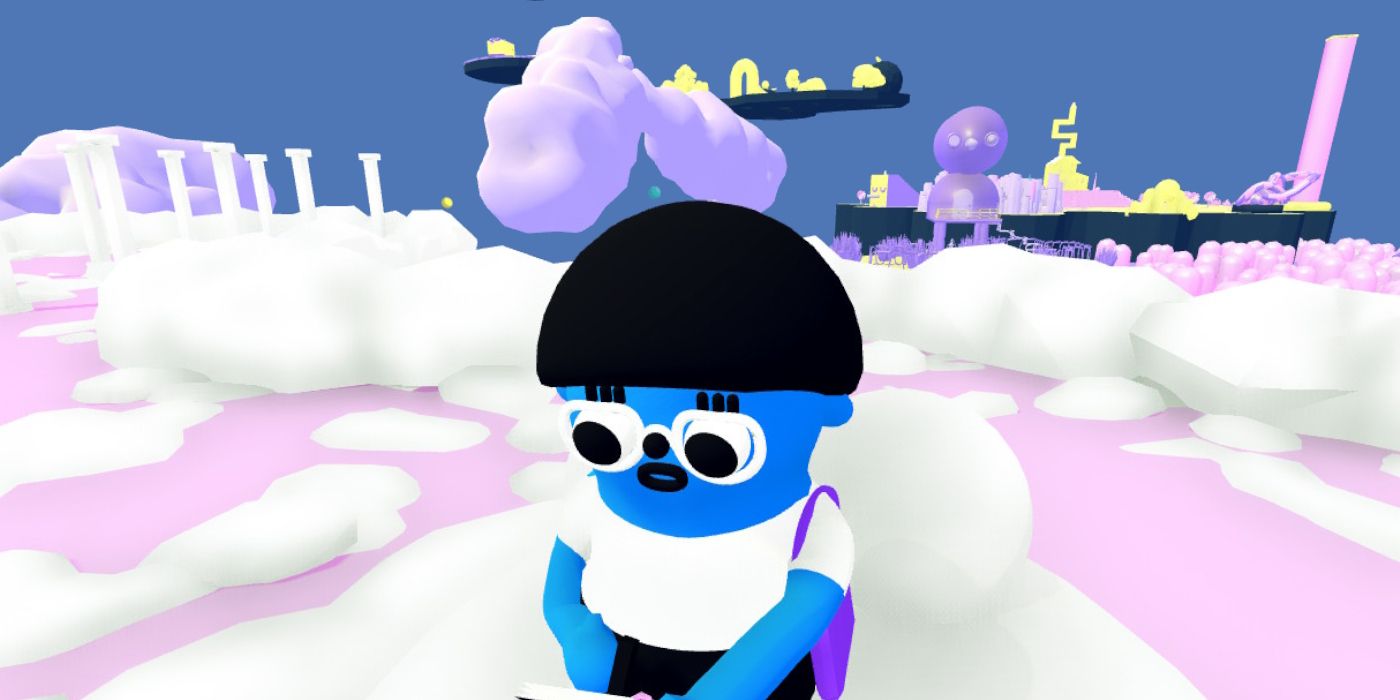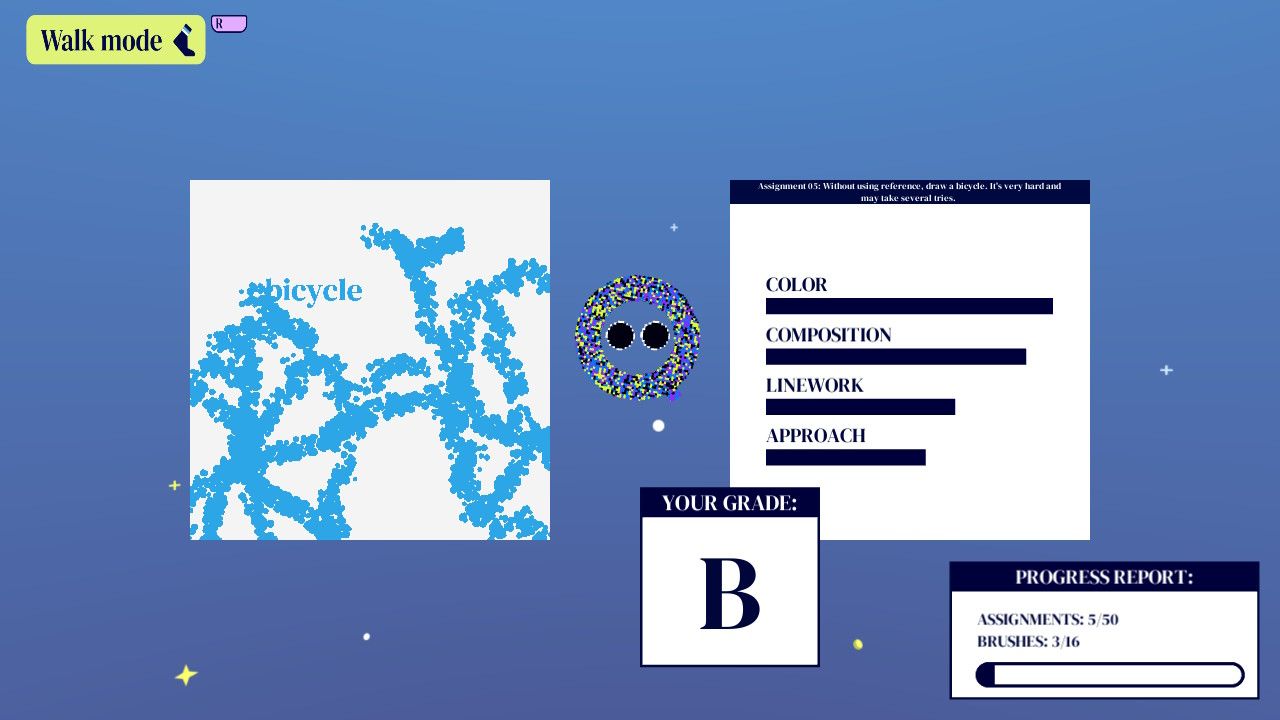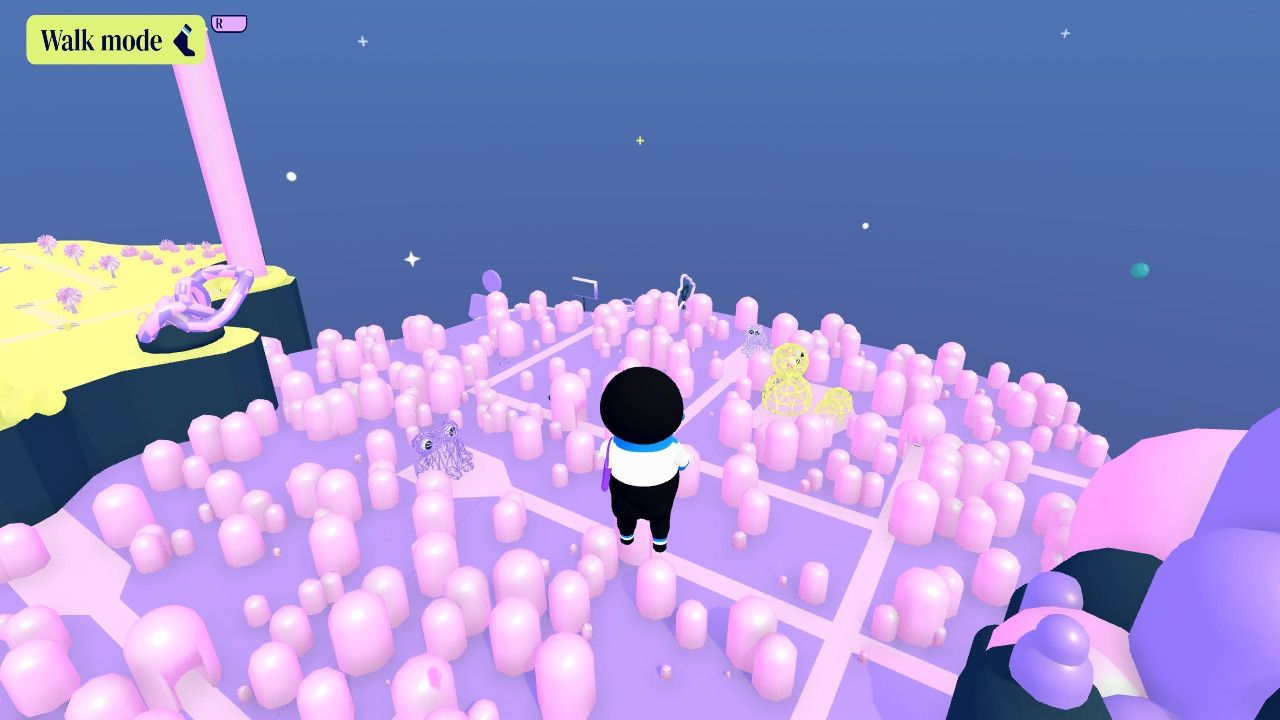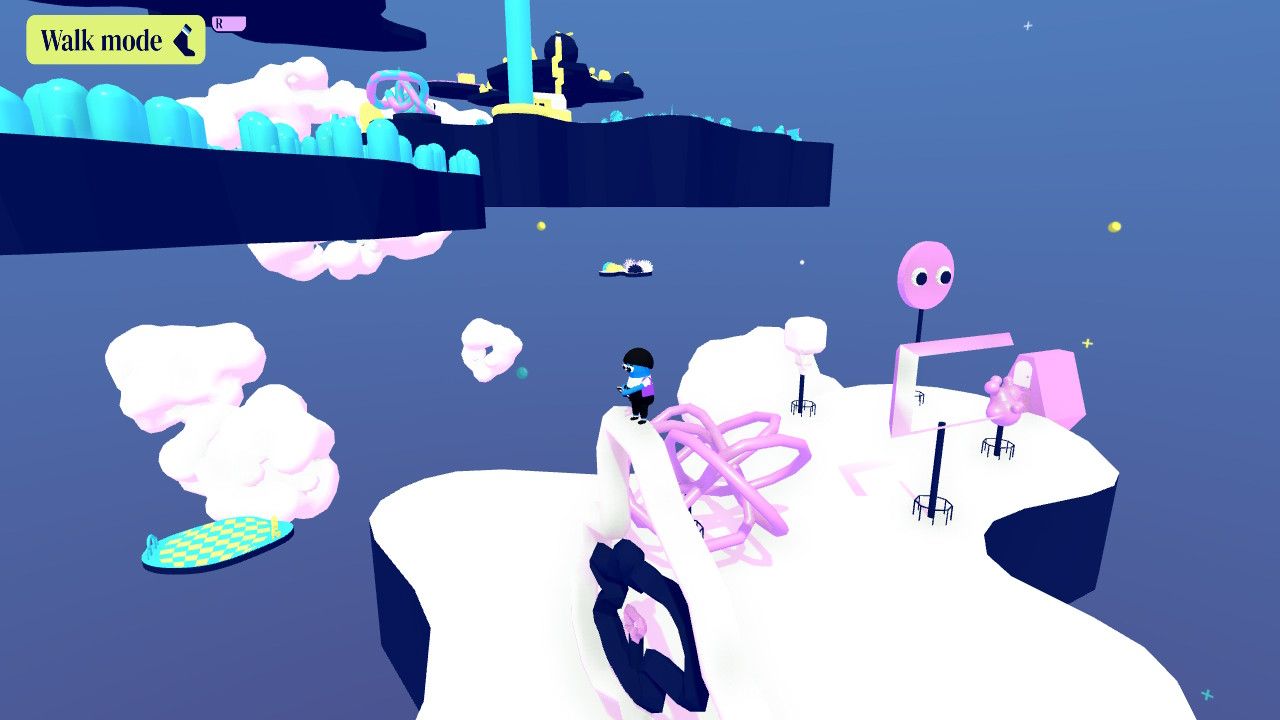The line that separates and fuses an artistic statement from any kind of traditional, recognizable game can be a fascinating dimension to explore. That Art Sqool’s own activities were as interesting themselves may have connected the dots of its intention in a more worthwhile or satisfying way. A dreamy, somewhat vaporwave-tinged aesthetic wraps this lightweight interactive experiment, and although it can impart a kind of meditative immersion in its best moments, the resultant feeling the player is left with is notably empty.
Of course, maybe that’s the aggressive point. Art Sqool itself is hardly that forward with anything, though, including its purported drawing mechanics. A static-textured professor named Qwertz leads main character Froshmin through a series of guided art "challenges." At the start of the game they can only draw single-color lines, but new brushes and colors can be collected throughout the game world, a scatter of disconnected islands in space filled with sculptures, blobs, jungle gyms, and mountainous miscellanea. Complete a challenge and enter any available door - or just fall off the side of an island into the galactic abyss - and Qwertz quickly grades the work, warps Froshmin elsewhere on the map, and hands them another drawing prompt.
Qwertz’s grading appears to be almost entirely random. While turning in a blank sheet rarely suffices, Art Sqool players can safely ignore any instruction and just draw whatever they want at any given time. The prompts are terse and direct, yet thoughtful: “Draw the last person you said ‘I love you’ to,” “Draw something from the top down,” “Draw a toy you remember,” and so on. Still, there’s no wildly complex algorithm testing player input under the hood, and Qwertz analyzes whatever amorphous nonsense is handed in before summoning a letter grade, which doesn’t amount to much.
Still, time spent with Art Sqool’s drawing tools can be engaging and quite peaceful in its own way, though highly dependent on a player’s state of mind. Unlike some other Nintendo Switch ports, this one features fleshed-out touch controls, and its resizable pad can be pulled out or stored away at any time. While pondering what to create, Froshmin can walk around the hallucinogenic campus and look for new tools to apply to future assignments, and a charming music-video-like interlude occasionally appears as a light checkpoint signal.
To wring any satisfaction or sense of progress out of the game is to contend with its minimal feedback, though, supplied more by the player themselves than any hard-coded reaction. That it seeks to make a consistent statement about art, art school, or penetrative self-inventory remains elusive when considering its paper-thin interactivity. It might be something of an emotional self-portrait of its creator, and many may certainly find its candy-colored presentation and glitchy movement appealing. There’s even an “infinite jump” bestowed on Froshmin from the start which, while cool, also makes the whole of Art Sqool feel like a debug mode, for better and for worse.
Despite some provocative drawing assignments, the primary issue with the game is its essentially cynical design approach. Since the assignments don’t matter and progress is barely defined, it feels more like a toy than an interactive argument about the lack of meritorious value in structured art education. Its world is colorful but dead, its soundtrack atmospheric but repetitive, its art tools efficient but limited, its game-feel entirely nonexistent. Art Sqool is the equivalent of a browser game recommended to someone by a friend, clicked on for a few minutes of distraction between headlines, but rarely bookmarked for later return.
Art Sqool isn’t the first game to leverage simple art play by a longshot, and contemporary games like Passpartout: The Starving Artist or even the design systems in Animal Crossing: New Horizons encourage players to create art to progress, for the sake of it, to make a statement, or to pointedly avoid making any at all. Art Sqool might want to just make light of the medium, or to take aim at systems which purport creative instruction, all of which is well and good, but also familiar territory. The ultimate result of asking $10 to these essentially banal ends is probably its most poignant opinion on art for profit.
Art Sqool is out now on PC, macOS, and Nintendo Switch. A digital Nintendo Switch code was provided to Screen Rant for the purpose of this review.




